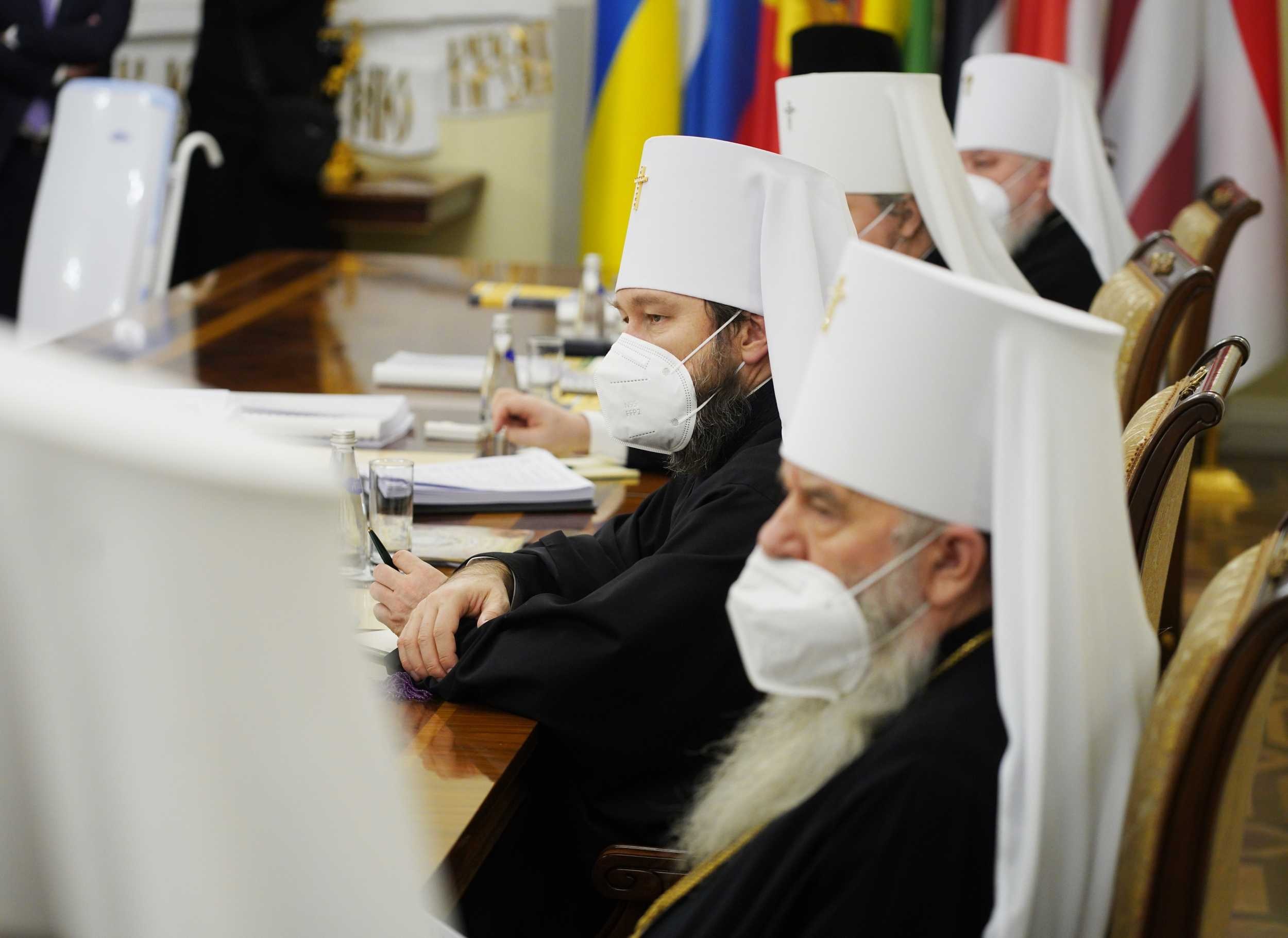The Russian Orthodox Church (ROC) responded to the accusations of the Patriarchate of Alexandria.
The members of the Holy Synod of the Russian Orthodox Church have read the Announcement of the Holy Synod of the Patriarchate of Alexandria concerning the establishment of the Exarchate of Africa by the Russian Orthodox Church, published on 12th January 2022, Department for External Church Relations ROC report.
The Holy Synod of the Russian Orthodox Church deems it necessary to respond to the attempts made in the document to distort the true reasons for the Exarchate’s establishment and the circumstances surrounding it, and ROC responded to the accusations of the Patriarchate of Alexandria.
According to the Announcement, the decision of the Moscow Patriarchate is accounted for by “the fact of the recognition… of the Autocephaly of the Ukrainian Orthodox Church” by Patriarch Theodoros of Alexandria.
This allegation is based on an intentionally false idea, because the Ukrainian Orthodox Church has existed to this day as a part, independent in its governance, of the Russian Orthodox Church. The Ukrainian Church has neither asked for nor received autocephaly. On the contrary, it strongly rejected the process of the granting of the so-called tomos of autocephaly, imposed from outside and supported by the country’s government authorities of the time and schismatics. Such standpoint was repeatedly and publicly expressed in official statements of the Council of Bishops and the Synod of the Ukrainian Orthodox Church, as well as in speeches of its archpastors, clergy, monastics and laypeople, the vast majority of whom wished back then and wish now to preserve their unity with the Moscow Patriarchate.
The so-called autocephaly was granted by the Patriarchate of Constantinople not to the canonical Ukrainian Orthodox Church – the largest confession in Ukraine currently numbering 108 hierarchs, 12,381 parishes, 12,513 clergymen, 260 monasteries and 4,630 monastics – but to a group of schismatics who, having fallen away from the Ukrainian Church, continue to be at enmity with it. It was those people without the lawful ordination and the grace of priesthood and like-minded persons that the Patriarchate of Constantinople used, acting in defiance of the canons, to form an “autocephalous church.” And it was that schismatic structure, void of grace, that Patriarch Theodoros of Alexandria entered into communion with.
With sorrow the Holy Synod of the Russian Orthodox Church notes the distortion of the Orthodox ecclesiology, manifested in the unfolded scenario of the so-called Ukrainian autocephaly. However, the distortion was committed not by the Russian Orthodox Church, as the Announcement of the Alexandrian Synod alleges. It is seen in the actions of the Patriarchate of Constantinople, which unlawfully intruded into Ukraine, as well as in the statements of its senior representatives. The attempts to establish the Primate, who is the first in the diptychs, as the “first without equals” in the Orthodox Church with the exclusive right to grant and revoke autocephalies at his discretion, tear away parts from the Local Churches, unilaterally annul adjudgements of the Bishops’ Councils of other autocephalous Churches, and at will “restore” to the holy orders the persons who have never been ordained – constitute an indisputable deviation from the patristic teaching on the Church and the centuries-old Orthodox Tradition.
The members of the Holy Synod of the Russian Orthodox Church remember the speeches made by the Primates of the Orthodox Church of Alexandria in support of the canonical Church in Ukraine in the bosom of the Moscow Patriarchate, including the statements of Patriarchate Theodoros that he would give on repeated occasions until recently. As he said in one of his interviews in 2016, he always took “a stance that the Ukrainian Church is an integral part of the Russian Orthodox Church.” While visiting Odessa in 2018, the Primate of the Patriarchate of Alexandria called upon believers to be faithful to the “canonical Church of Ukraine headed by Metropolitan Onufry.”
However, on 8th November 2019, Patriarch Theodoros suddenly announced his recognition of the Ukrainian schismatic group, started commemorating its head during the divine services, and on 13th August 2021, entered into the direct Eucharistic communion with him.
As is known, the recognition of the schismatic structure in Ukraine by Patriarch Theodoros met with opposition, including within the Orthodox Church of Alexandria itself. Many of its clergymen publicly spoke out in defence of the canonical Ukrainian Church, stated their disagreement with the clearly unlawful decision of their Primate and had no wish to remain under the canonical authority of the person who had embarked on the path of schism.
For two years the Russian Church did not respond to the appeals coming from African clerics, but patiently waited for Patriarch Theodoros to change his decision. However, during that time not only did he commemorate the head of one of the Ukrainian schismatic groups in the diptychs of the Orthodox Primates, but he also entered into the Eucharistic communion with him and other “hierarchs” of that structure. Those sorrowful developments convinced the Russian Orthodox Church’s Holy Synod of the necessity to respond to the coming appeals and under these exceptional circumstances to establish the Patriarchal Exarchate in Africa.
Such difficult decision, taken in the situation when the Patriarch of Alexandria recognized the Ukrainian schismatics, is by no means a sign of claims to the canonical territory of the ancient Church of Alexandria. It pursues one goal only – to give canonical protection to those Orthodox clerics in Africa who do not wish to be involved in the unlawful legitimization of the schism.
We call upon Patriarch Theodoros II of Alexandria and the archpastors of the Most Holy Church of Alexandria to renounce their support for the Ukrainian schism and return to the canonical path in order to preserve the unity of the Holy Orthodoxy.
See also:
ROC Foreign Secretary warns Russia against war with Ukraine
DECR Chairman met with delegation from Croatia
